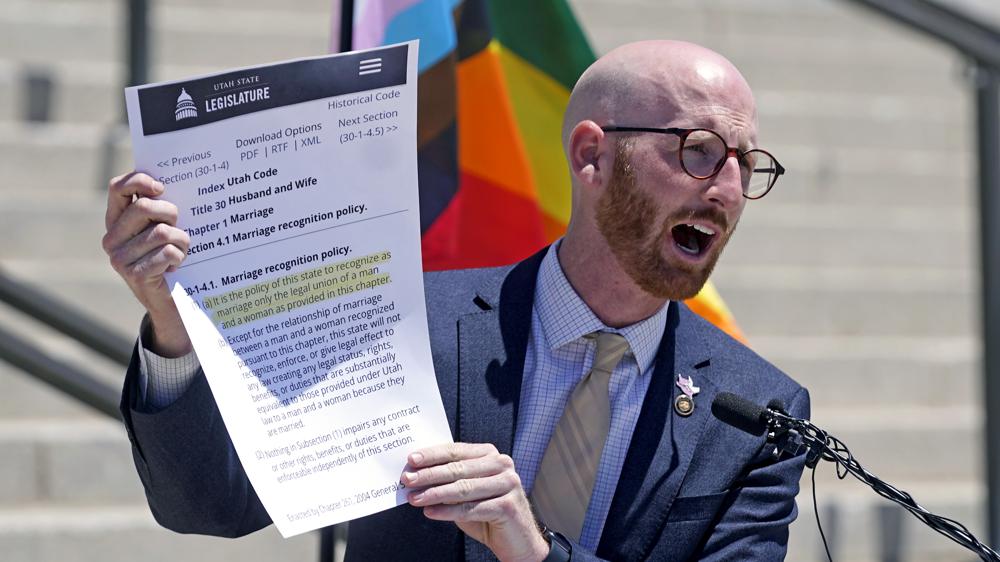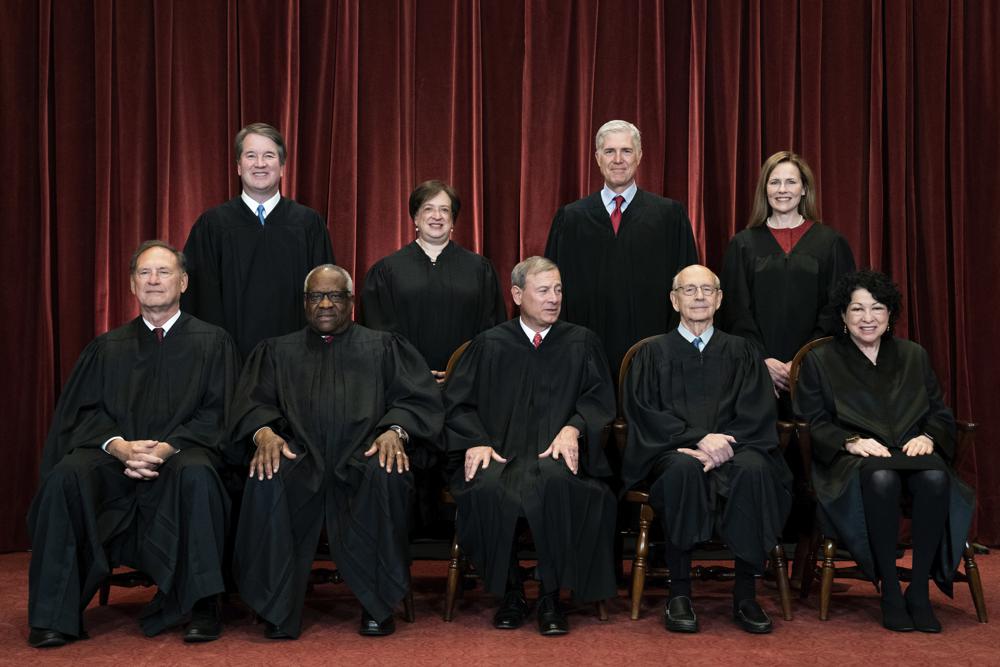We know that politicians and media pundits often brandish the Constitution around citing chapter and verse. Last week we saw Roe V. Wade get flipped by the Supreme Court based on the majority ruling saying that it did not have Constitutional standing.
The court dismissed nearly 50 years of settled law. Make no mistake about it this was a political ruling and not a legal one that the high court handed down.
This ruling came about 24 hours after the Court ruled 6-3 for gun owners overturning a New York state law requiring applicants for a license to carry a gun outside of their homes to have a “proper cause” to do so, saying it violated the Second Amendment of the U.S. Constitution.
The New York law had been on the books since 1911 and upheld by governors both Democrat and Republican until the case known as New York State Rifle & Pistol Association Inc. v. Bruen found its way through the lower courts before the Supreme Court ruled.
Then came the Roe decision where the court for the first time in history voted to take away rights from citizens that was given to women by the Supreme Court. Roe v. Wade, 410 U.S. 113 (1973), was a landmark decision of the U.S. Supreme Court in which the Court ruled that the Constitution of the United States generally protects a pregnant woman’s liberty to choose to have an abortion.
As we know by now led by Justice’s Samuel A. Alito and Clarence Thomas joined by the newest trio Neil Gorsuch, Brett Kavanaugh and Amy Coney Barrett who joined together to overturn Roe. Alito writing for the majority made the argument that it wasn’t protected by the constitution in the first place so forget the settled law part of the argument.
So, that set me to do some research on what other things we take for granted that also aren’t covered by the United States Constitution. It might surprise you on what is and is not in the document we hold so sacred.
Thanks to Time Magazine and Learn Religions for providing the information used in my research for this story.
Given the flipping of Roe let’s start with the words “women” and “sex” neither are words that appear in the Constitution, revealing the limits of the Founding Fathers’ narrow understanding of women as equal citizens. As we know women did not get the right to vote until 1920.
Many are concerned that the next shoe to drop would be the right to same sex marriage. But you might be interested in knowing that the Constitution left something else out.

The Right to Marriage
Heterosexuals seem to take it for granted that they have a right to marry whom they want; there is no such right in the Constitution, however. The Constitution says nothing at all about marriage and the regulation of marriage is left to the states. In theory, a state could ban all marriages, or all interfaith marriages, without violating anything explicitly stated in the Constitution. Equal protection of the laws must be maintained; otherwise, marriage can be restricted in lots of ways.
We have been told by Democrats that they can’t pass a national law to protect women’s reproductive rights because of the filibuster. However, it is a rule not a law and the number can be whatever the party in power wants it to be.
The filibuster.
The long-standing policy of unlimited debate in the Senate, which now effectively means a bill needs 60 votes to pass instead of 50, is a matter of internal Senate procedure and is not mentioned in the Constitution.
Okay how about we add four liberal justices to the Supreme Court?
The size of the Supreme Court. Article III, which establishes the Supreme Court, says nothing about how many members it should have.

Of note over the years Congress has passed various acts to change this number, fluctuating from a low of five to a high of ten. The Judiciary Act of 1869 fixed the number of Justices at nine and no subsequent change to the number of Justices has occurred. But again, Congress can overturn that law and put as many justices on the court as they wish,
Okay we as Democrats and Republicans need to vote so that we can right this wrong if we support Roe or battle to do away with all abortions if we are Republicans. But wait if we go by the Constitution it throws up a couple of interesting roadblocks here if we are to follow the document.
Political parties
The Constitution does not mention parties or assign them any official responsibilities in government. Further complicating matters, we look at voting.

The Right to Vote
How can a country be democratic if there is no right to vote? The Constitution lists no such explicit right, as it does with speech or assembly. It only lists reasons why you can’t be denied the ability to vote — for example, because of race and sex. It also lists some basic requirements, such as being 18 or older. Voting qualifications are set by the states, which can come up with all sorts of ways to deny people the ability to vote without violating anything stated in the Constitution as we see being done in a number of states.
As I stated earlier Women were given the right to vote in 1920 and Blacks gained the right to vote without things like a poll tax in 1965,
Here are a few more things that might surprise you that aren’t in the Constitution.
The word “democracy” does not appear once in the Constitution. There was a proposal at the Constitutional Convention to limit the standing army for the country to 5,000 men.
The right to privacy. The word “privacy” does not appear anyone in the Constitution. The concept developed mainly from of the Supreme Court’s interpretation of the Fourth Amendment, which protects against “unreasonable search and seizures,” and has subsequently become the central argument in several landmark court decisions, including Roe v. Wade. In Friday’s most recent SCOTUS decision the high court used that argument to abolish the law 5-4.
Innocent until Proven Guilty
American courts treat accused criminals as innocent until proven guilty; this ensures that they are accorded all the rights they are due. There is nothing in the Constitution about a right to be treated innocent until proven guilty, though. The concept comes from English common law, and several parts of the Constitution, such as the right to remain silent and the right to a jury trial, only make sense in light of a presumption of innocence; without this presumption, what’s the point?
The right to a jury of your peers. The Constitution guarantees the right to a trial by jury (Article III, Section 2) that is “impartial” (the Sixth Amendment), but makes no mention of peers.

Judicial review. The concept of judicial review is a product of the 1803 Supreme Court case Marbury v. Madison, in which the court established its own role as the arbiter of the constitutionality of legislation. “Chief Justice John Marshall basically created a court to his liking,” says George Washington University legal scholar Jonathan Turley, noting that the Framers did not necessarily intend for the court to have such authority.
The right to remain silent. This famous opening line to the Miranda warning is not enshrined in the founding document (nor is the requirement that a person be read his or her rights in the first place), but is rather an extension of the Fifth Amendment right against self-incrimination.
The Right to Travel
Many think that they have a basic right to travel where they want when they want — but there is nothing in the Constitution about a right to travel. This was no oversight because the Articles of Confederation did list such a right. Several Supreme Court cases have ruled that this basic right exists and that the state can’t interfere with travel. Perhaps the authors of the Constitution thought that the right to travel was so obvious that it didn’t need to be mentioned. Then again, perhaps not.
The pursuit of happiness. That’s in the Declaration of Independence.
This just shows that government is complex and if not overseen by responsible people that we elect there are plenty of things that can be abused. Over the past five years the three new Supreme Court Justices that flipped Roe, sided with gun owners in New York may just be getting started.
So, those who think it is time to skip the midterms might be wise to know what they are giving up by passing on voting. I mean on the local level, the state level and nationally because the things you hold as rights you take for granted could be gone.








